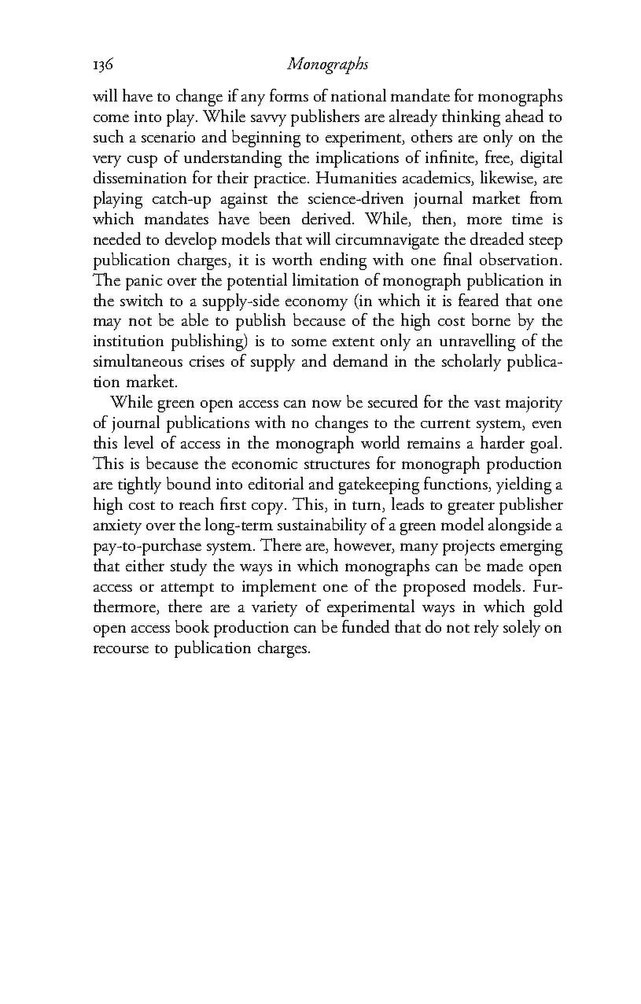will have to change if any forms of national mandate for monographs come into play. While savvy publishers are already thinking ahead to such a scenario and beginning to experiment, others are only on the very cusp of understanding the implications of infinite, free, digital dissemination for their practice. Humanities academics, likewise, are playing catch-up against the science-driven journal market from which mandates have been derived. While, then, more time is needed to develop models that will circumnavigate the dreaded steep publication charges, it is worth ending with one final observation. The panic over the potential limitation of monograph publication in the switch to a supply-side economy (in which it is feared that one may not be able to publish because of the high cost borne by the institution publishing) is to some extent only an unravelling of the simultaneous crises of supply and demand in the scholarly publication market.
While green open access can now be secured for the vast majority of journal publications with no changes to the current system, even this level of access in the monograph world remains a harder goal. This is because the economic structures for monograph production are tightly bound into editorial and gatekeeping functions, yielding a high cost to reach first copy. This, in turn, leads to greater publisher anxiety over the long-term sustainability of a green model alongside a pay-to-purchase system. There are, however, many projects emerging that either study the ways in which monographs can be made open access or attempt to implement one of the proposed models. Furthermore, there are a variety of experimental ways in which gold open access book production can be funded that do not rely solely on recourse to publication charges.
